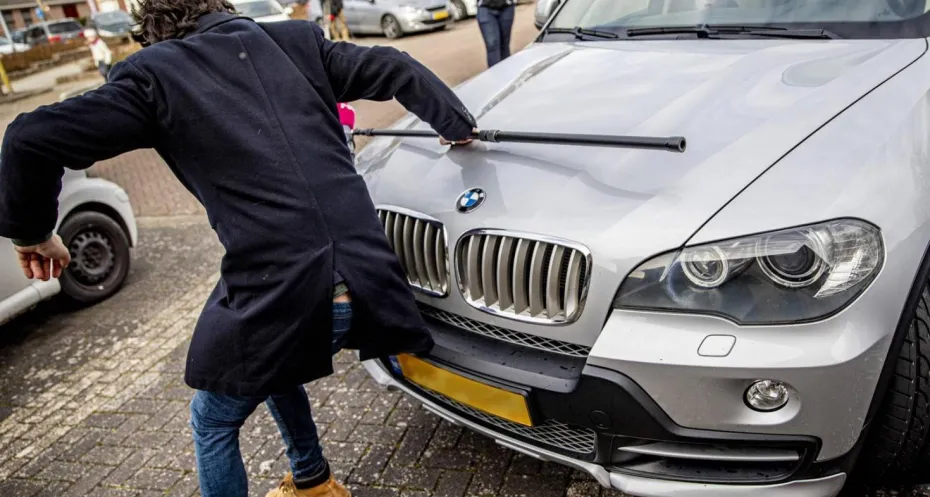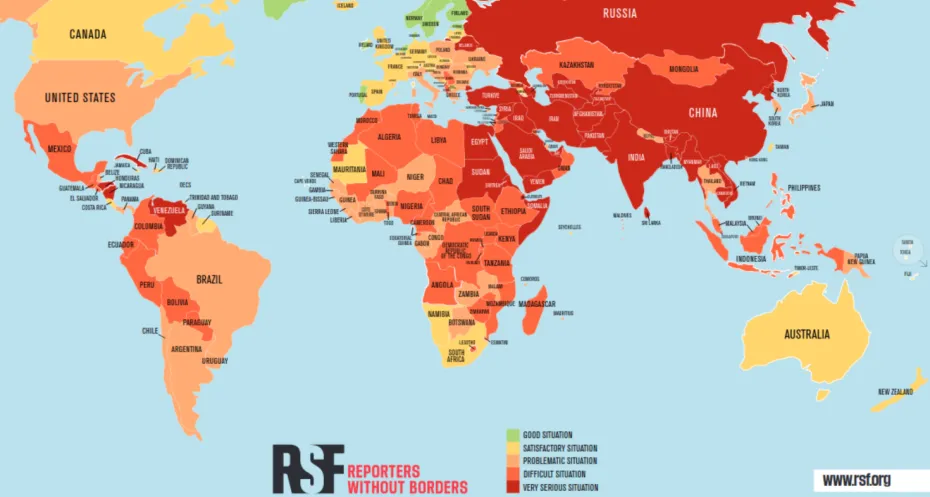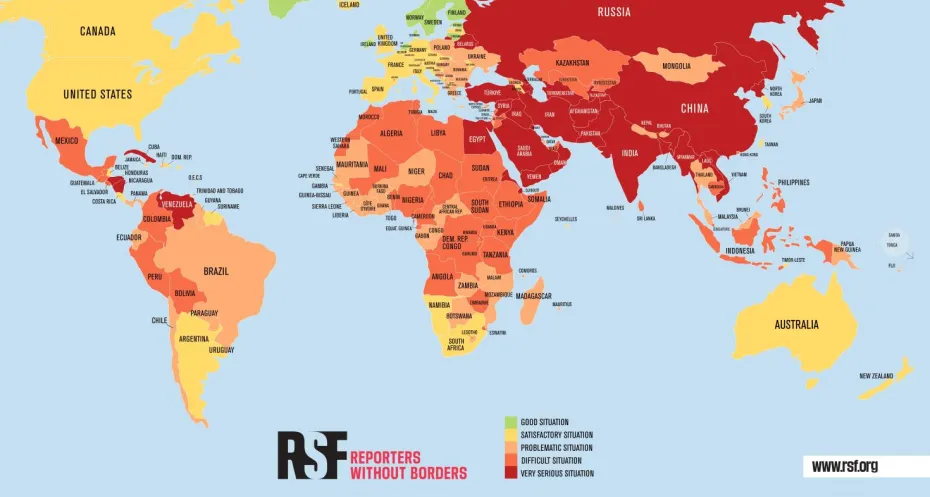The Netherlands falls to its lowest ever position on the World Press Freedom Index

This International Press Freedom Day begins with alarming news for the Netherlands - lowering 22 places in this year’s World Press Freedom Index by Reporters Sans Frontières (RSF). This ranking is unprecedented in the history of the Index - the Netherlands has always been in the top 10 since the Index was created in 2002.
Despite the relatively favorable conditions for press freedom in the Netherlands, aggression against journalists undoubtedly increased in 2021. And this is reflected in the Index: because this year the Netherlands fell from 6th to 28th place.
Looking back to the year 2021: the Public Broadcaster NOS removed its logos from vans to protect its employees, and crime journalist Peter R. de Vries was murdered in broad daylight. In the province Gelderland, a press photographer was pushed into a ditch with his car by an excavator, while investigative journalist Willem Groeneveld received a firebomb through his letterbox. Furthermore, three journalists were arrested during demonstrations in two days.
Tackling increasing violence
The question arises whether the ‘Dutch approach’ is sufficiently resistant to the growing aggression against journalists and the threat from organized crime. Our recent research into the safety of journalists in the Netherlands as part of the MFRR Internal Fact-Finding Mission led by Free Press Unlimited, shed a light on this. Based on interviews with more than twenty key local stakeholders, the report concluded that there are specific ways to improve the protection of journalists.
“Recommendations of the report should be put in motion as soon as possible,” stated Ruth Kronenburg, Director of Free Press Unlimited. “The Netherlands has always been a frontrunner and champion of press freedom worldwide. To maintain this position, it is crucial that freedom of the press and the safety of journalists remains high on the agenda."
In addition to the safety of journalists, RSF mentioned a number of points where the Netherlands can improve when it comes to press freedom. These include attacks on the media from populist parties, from all parts of the political spectrum, and the difficulties in accessing government information. In many cases, in the case of a request for information under the Dutch Public Accessibility Act, the documentation requested by journalists arrives late, was incorrect or incomplete. Finally, the increasing concentration of power is mentioned, two media companies own the vast majority of the newspapers, and there is concern about the decline of regional journalism.
The World Press Freedom Index
The 20th World Press Freedom Index published by Reporters Without Borders (RSF) reveals a two-fold increase in polarisation amplified by information chaos – that is, media polarisation fueling divisions within countries, as well as polarisation between countries at the international level.
Go see the index here.
Photo in header: Rob Voss.


